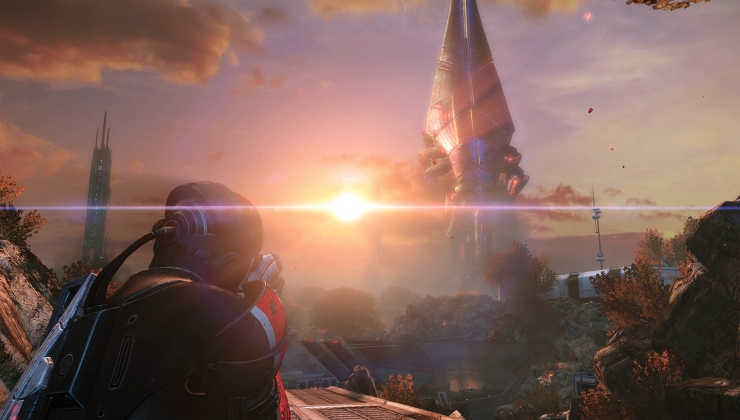NVIDIA have put up a smaller stable update for their Linux driver with a couple of noted fixes included. Here's the details. Since this is a stable driver in their Production Branch, all users should be okay to upgrade.
Here's what's included in version 525.85.05:
- Improved the reliability of suspend and resume on UEFI systems when using certain display panels.
- Fixed a bug that prevented some controls in the nvidia-settings control panel from working when running an X server as an unprivileged user.
- Fixed a bug that could cause VK_ERROR_DEVICE_LOST when using VK_MEMORY_ALLOCATE_DEVICE_ADDRESS_CAPTURE_REPLAY_BIT to allocate memory.
- Disabled Fixed Rate Link (FRL) when using passive DisplayPort to HDMI dongles, which are incompatible with FRL.
On GitHub, their open GPU kernel modules were also updated along with it to fix build problems with Clang 15.0.
Is there a bug in the NVIDIA drivers you're waiting on a fix for? Let me know in the comments.
Some you may have missed, popular articles from the last month:
All posts need to follow our rules. Please hit the Report Flag icon on any post that breaks the rules or contains illegal / harmful content. Readers can also email us for any issues or concerns.
This driver didn't work well for me in Fedora 37 with the new 6.1.7 kernel. My second monitor wasn't detected, though the screen was mirrored. The settings app was also missing most content which seems the opposite of their bug fix about non-privileged users running X.
0 Likes
Okay, i always had suspend and resume problems, maybe that's fixed now.
0 Likes
Didnt notice any of the VK_ERROR_DEVICE_LOST problems with previous 525.78 drivers. But good to have drivers updated. No issues to report. Seems to work perfectly
0 Likes
Quoting: rcritThis driver didn't work well for me in Fedora 37 with the new 6.1.7 kernel. My second monitor wasn't detected, though the screen was mirrored. The settings app was also missing most content which seems the opposite of their bug fix about non-privileged users running X.I've seen numerous multi-screen problems with NVIDIA recently. On KDE I keep having to removing the settings files. Not sure what the cause is, my 4K secondary monitor has multiple resolutions that now on Linux with NVIDIA just don't work (but work fine on Windows...).
0 Likes
Strange. I have 2x 2560x1440 screens (DP) and 1x 4K TV (Connected via HDMI). Zero issues with those
0 Likes
I have a single 4K@120Hz over HDMI and I've started having an issue where about 30 seconds after resuming from sleep the display will just go black for about 10 secs and everything will come back as if the whole graphics stack rebooted itself.
It hasn't been painful enough to me to dig more deeply in to see what's going on though since it works pretty flawlessly otherwise and I get to have an extra sip of tea while I wait for my workstation to wake.
It hasn't been painful enough to me to dig more deeply in to see what's going on though since it works pretty flawlessly otherwise and I get to have an extra sip of tea while I wait for my workstation to wake.
0 Likes
I have a multi-monitor setup consisting of my laptops screen and a 2k@165Hz external monitor
The external monitor is plugged in a DP controlled by the NVidia discrete
Im using Fedora 36 and dont Know why the screen is so slow. The monitor tells me that the mode is 165Hz, but, when I open test-ufo, the test presents 50Hz tops
We can tell the slowness when resize/moving windows and scrolling. Is like a 60Hz screen.
But, when I use the same application on the laptops built-in screen, a 1920x1080@144Hz, the test-ufo presents the correct refresh rate (144Hz), and you can tell the smoothness when resize/moving windows.
On Windows 10, the external monitor is very fast and smooth.
The external monitor is plugged in a DP controlled by the NVidia discrete
Im using Fedora 36 and dont Know why the screen is so slow. The monitor tells me that the mode is 165Hz, but, when I open test-ufo, the test presents 50Hz tops
We can tell the slowness when resize/moving windows and scrolling. Is like a 60Hz screen.
But, when I use the same application on the laptops built-in screen, a 1920x1080@144Hz, the test-ufo presents the correct refresh rate (144Hz), and you can tell the smoothness when resize/moving windows.
On Windows 10, the external monitor is very fast and smooth.
0 Likes
The driver keeps needing manual recompiling of the kernel module on Fedora 37, which is pretty annoying
0 Likes
What's the best way to get notifications of updates to the drivers? Their search page uses weirdo JavaScript, and all their RSS feeds are broken. I suppose there is the "releases" page of open-gpu-kernel-modules on GitHub, but that is not necessarily in sync with the proprietary drivers on their site, no?
I could get them from the GamingOnLinux's own RSS feed but surely there is a much direct way?
I could get them from the GamingOnLinux's own RSS feed but surely there is a much direct way?
0 Likes
Quoting: remram44What's the best way to get notifications of updates to the drivers? Their search page uses weirdo JavaScript, and all their RSS feeds are broken. I suppose there is the "releases" page of open-gpu-kernel-modules on GitHub, but that is not necessarily in sync with the proprietary drivers on their site, no?I look here https://forums.developer.nvidia.com/t/current-graphics-driver-releases/28500
I could get them from the GamingOnLinux's own RSS feed but surely there is a much direct way?
1 Likes
Quoting: omer666The driver keeps needing manual recompiling of the kernel module on Fedora 37, which is pretty annoyingCouldn't you just install akmod-nvidia from rpmfusion? I'm running fedora silverblue 37 so that's basically the only way for me to install the nvidia drivers.
BUT I need to wait for the new drivers to actually be posted on the repo. I did have the issue of a passive DP->HDMI port not showing the correct refresh rates as I posted on this [thread here](https://forums.developer.nvidia.com/t/cant-set-custom-resolution-using-proprietary-drivers/238935) on the developer forums.
0 Likes
Quoting: zastrixI am indeed using akmod from RPMFusion, the module compiles automatically but the driver can't find it. I need to passQuoting: omer666The driver keeps needing manual recompiling of the kernel module on Fedora 37, which is pretty annoyingCouldn't you just install akmod-nvidia from rpmfusion? I'm running fedora silverblue 37 so that's basically the only way for me to install the nvidia drivers.
BUT I need to wait for the new drivers to actually be posted on the repo. I did have the issue of a passive DP->HDMI port not showing the correct refresh rates as I posted on this [thread here](https://forums.developer.nvidia.com/t/cant-set-custom-resolution-using-proprietary-drivers/238935) on the developer forums.
dnf remove kmod-nvidia* and then akmods --force and reboot.Don't you have the same problem on Silverblue?
Maybe my install is getting a bit old...
0 Likes
Quoting: omer666Not really and I can't either way. Because Silverblue is immutable it's probably prebuild before sending it to rpm-ostree. I have to wait for a stable atomic update/upgrade.Quoting: zastrixI am indeed using akmod from RPMFusion, the module compiles automatically but the driver can't find it. I need to passQuoting: omer666The driver keeps needing manual recompiling of the kernel module on Fedora 37, which is pretty annoyingCouldn't you just install akmod-nvidia from rpmfusion? I'm running fedora silverblue 37 so that's basically the only way for me to install the nvidia drivers.
BUT I need to wait for the new drivers to actually be posted on the repo. I did have the issue of a passive DP->HDMI port not showing the correct refresh rates as I posted on this [thread here](https://forums.developer.nvidia.com/t/cant-set-custom-resolution-using-proprietary-drivers/238935) on the developer forums.dnf remove kmod-nvidia*and thenakmods --forceand reboot.
Don't you have the same problem on Silverblue?
Maybe my install is getting a bit old...
Usually during Nvidia version transitions I can't update my system for half a day or up to a day like now because of dependency issues.
But because of the atomic updates the current one I'm using is stable and so will be the next one when they fix out the quirks.
P.S.
You're removing kmod-nvidia*, right? I have akmod-nvidia (with an a at the start) installed which should build the kernel stuffs during udpates.
https://rpmfusion.org/Howto/NVIDIA, section Installing the drivers
sudo dnf update -y # and reboot if you are not on the latest kernel
sudo dnf install akmod-nvidia # rhel/centos users can use kmod-nvidia instead
sudo dnf install xorg-x11-drv-nvidia-cuda #optional for cuda/nvdec/nvenc support
0 Likes







 How to setup OpenMW for modern Morrowind on Linux / SteamOS and Steam Deck
How to setup OpenMW for modern Morrowind on Linux / SteamOS and Steam Deck How to install Hollow Knight: Silksong mods on Linux, SteamOS and Steam Deck
How to install Hollow Knight: Silksong mods on Linux, SteamOS and Steam Deck